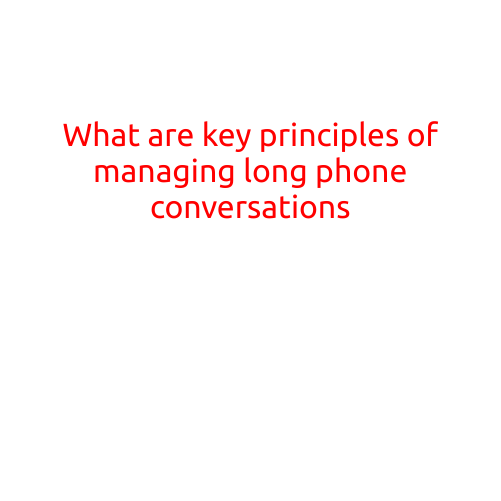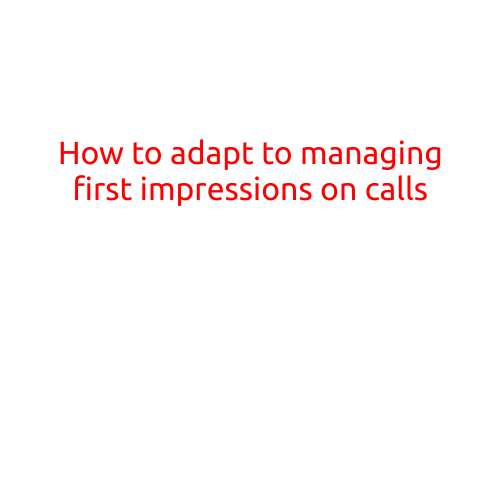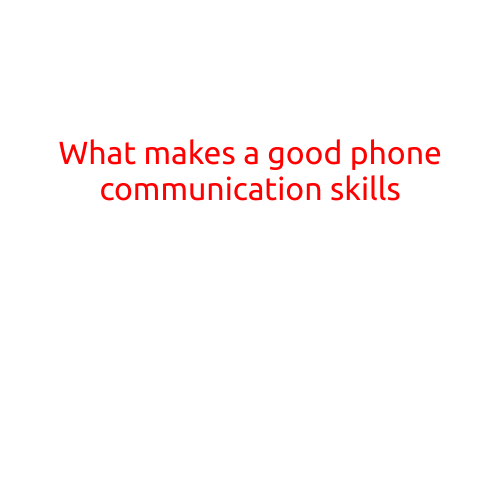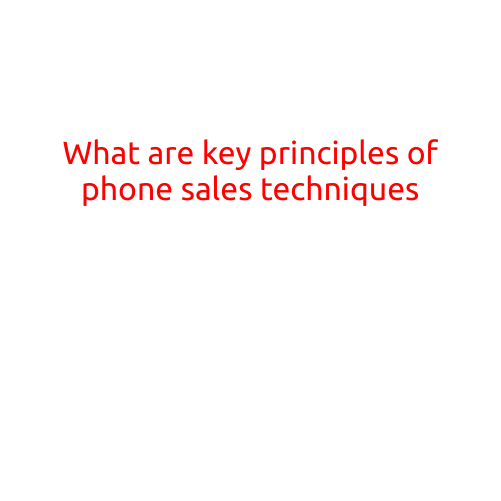
What are Key Principles of Managing Long Phone Conversations?
In today’s fast-paced digital age, it’s easy to get caught up in lengthy phone conversations. Whether it’s a personal or professional call, managing long phone conversations can be a challenge. Effective communication is vital in any relationship, and knowing how to navigate long conversations can help you build stronger bonds and achieve your goals. In this article, we’ll explore the key principles of managing long phone conversations and provide you with valuable tips to stay engaged and focused.
1. Set Clear Objectives
Before picking up the phone, define what you want to achieve from the conversation. This will help you stay focused and ensure you don’t stray off-topic. Be specific about the key points you want to discuss, and prioritize them to avoid unnecessary detours.
2. Establish a Comfortable Rapport
Start with a friendly greeting and take a moment to establish a comfortable rapport with the person on the other end. This can be as simple as asking about their day or weekend. Building a rapport helps create a sense of connection, making it easier to maintain engagement throughout the conversation.
3. Practice Active Listening
Listen attentively to what the other person is saying, and show that you’re engaged by nodding, making eye contact, or summarizing their points. Active listening helps prevent misunderstandings, builds trust, and encourages open communication.
4. Maintain Your Posture
While it may seem unrelated, maintaining good posture while on a phone call can help you stay focused and engaged. Sit up straight, with your feet planted firmly on the ground, and avoid slouching or leaning forward, which can make you feel tired and drained.
5. Take Breaks
Long phone conversations can be mentally exhausting. Take breaks every 20-30 minutes to stretch, move around, and rest your voice. This will help you recharge and come back to the conversation with renewed energy and focus.
6. Stay Organized
Keep a notepad and pen nearby to jot down important points, follow-ups, or action items discussed during the call. This will help you stay organized and ensure you don’t forget crucial details.
7. Be Authentic and Empathetic
Authenticity and empathy are essential in any conversation. Be yourself, and show genuine interest in the other person’s perspective. Avoid being too pushy or aggressive, as this can lead to defensiveness and conflict.
8. Use Non-Verbal Cues
Non-verbal cues like body language, tone of voice, and facial expressions can convey your emotions and intentions. Use these cues to show agreement, understanding, or surprise, helping to build trust and facilitate open communication.
9. Be Aware of Time
Long phone conversations can easily get out of hand. Set a mental timer or use a clock to keep track of time. Be mindful of the other person’s schedule and keep the conversation concise, but still meaningful.
10. End the Conversation on a Positive Note
Conclude the conversation with a clear understanding of what was discussed and agreed upon. Express gratitude for the other person’s time and affable nature, and reinforce your commitment to following up on any action items.
In conclusion, managing long phone conversations requires a combination of preparation, attention to detail, and effective communication skills. By incorporating these key principles into your daily conversations, you’ll become more confident, engaging, and productive in your interactions, ultimately leading to stronger relationships and a more successful personal and professional life.





